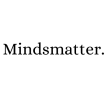The Only God You Should Be Praising Is Your Own Mind
Welcome to the religion of the mind

Was Buddha the first mental health professional in history? Arguably! If I say the words Zen philosophy, images of monks in monasteries will surely come to mind. Perhaps you imagine people with shaved heads who made vows of silence. Well... I would imagine it too so I don't judge you for a single second.
However, there is much we can learn from Buddhism to take better care of our health. But how can a millennial oriental religion help you deal with mental illnesses and disorders?
First things first: no belief, philosophy, or motto can substitute for certified professional medicine, so forget about canceling your appointment with your therapist. But there are certain principles of Buddhism and Zen philosophy that we can study, take a thing or two, and try to apply in our lives.
It does not matter if you are part of a different religion, whether you are a Christian, Muslim or Jewish, or if you are not part of any religion. I am not talking about converting to Buddhism, I am not even a Buddhist myself, I have been a Catholic my entire life. But looking at some teachings of Zen, you will realize that they are not about praising a God, it is about yourself and your mind.
Honestly, we all have a thing or two to learn about Zen Buddhism and meditation.
Zen philosophy: the religion of the mind
Zen is a practice and belief that emerged from Buddhism in China bazillions of years ago (well not so many, but a long time ago). This dogma was so well received that it quickly spread to the rest of Asia, Europe, and America.
Zen does not push you to praise a god or to follow certain rules to go to paradise, it is about practicing every day to awaken the consciousness of the mind. How do you practice? Well, meditating. What is the goal? Reach enlightenment and be one with the universe.
I know it sounds a bit psychedelic, but in essence, this branch of Buddhism wants you to work your mind, as it is the most important thing about you. Understand it, take care of it, exercise it, and appreciate it. Isn't that what mental health is all about?
Luckily for us, for the Zen philosophy, there is no limited number of tickets for enlightenment, we can all get to it. You don’t have to be the most spiritual person or have superhuman gifts, you just have to practice practice practice every day.
Enlightenment is a state of mindfulness, it is like unlocking 100% of the brain capacity (although we actually know that this is a myth), but it is a fun and interesting way to explain it. What is Enlightenment for you? Well, let's say this can be peace of mind, mental health, or emotional intelligence.
Contemplative meditation
We have previously talked about meditation and its benefits are no longer a secret. Although Buddhism has a very specific way of meditating, which is the classical lotus position, breathing, and chanting the “Om” mantra, you can meditate however it works for you.
Think of Buddhism as a gym that you sign up for to exercise your mind. You can have a personal trainer but you are also free to train your way. With dedication and perseverance, you will be able to lift up to two hundred pounds with your brain.
Contemplative meditation is done to achieve Nirvana, which apart from a grunge band from the 90s is a state of fullness and happiness of the mind. By meditating, you can focus on what is really important, let go of negative and unproductive thoughts and concentrate on what is truly essential.
Let's say that perhaps you are not very interested in reaching the maximum state of spiritual Enlightenment, but by meditating you can relieve stress, reduce anxiety and depression. Maybe that's not Nirvana but it sounds pretty good to me!
The mind shapes reality
One of the main principles of Zen philosophy is that reality is conditioned to the mind. This means that what we experience depends on how we perceive it and that if you work on it, you can change your reality by changing your mindset.
A failure can become a lesson, you just have to consciously bring your mind there. Although there will always be inherently bad and painful experiences, at least this way we won't feel like a little boat adrift, as seeing things this way gives us control over how we feel. Any mental health professional would tell you that this is basically emotional intelligence.
Detach to have peace
There is a reason why Buddhist monks go to secluded monasteries in the mountains without any belonging, Buddhism teaches you that material detachment is a way of liberating yourself. However, you must also detach yourself from thoughts, situations, beliefs. Attachment is a way of opposing change and the natural flow of things.
Said in a way closer to us, you must detach yourself from the past and the future. Being tied to the past does not allow us to move forward or heal, and being too worried about the future causes us anxiety and worry. Detaching is being completely in the present, being grateful for what you have and where you are. This can become a very favorable mental exercise.
Connect with others to connect with yourself
Buddhism is also about treating others with compassion and kindness. We are all part of something bigger, but no one is something bigger on their own. Theologically this is explained as that we are all part of a net, that net is the universe.
But don't try too hard to understand that, just see it this way: being grateful to the people around us is a way of working on ourselves. Make connections with others, be part of their healing and let others be part of yours. You don't have to exist as an isolated individual.
Zen philosophy for treating mental illness
In the United States, Buddhism or Buddhist practices are becoming increasingly popular, this may be due to the difficulty of accessing mental health systems in that country. People tend to look for alternatives to their problems.
I must say it again, in no way can this be a substitute for professional help.
People who suffer from a mental illness, such as bipolar disorder, depression, anxiety, or PTSD, have found refuge in Zen meditation. Contemplative meditation has helped them to alleviate and heal very great pains that they did not recognize and did not allow them to recover. Others argue that while they do not consider themselves religious people, applying some principles of Buddhism has helped them see life more encouragingly.
Many psychiatrists, therapists, and mental health professionals have implemented Buddhism teachings in traditional mental treatments. So don't be surprised if your therapist tells you that the Self is an illusion.
I personally believe that religions can be very beneficial and benign, it depends on how you decide to practice them. I don't see why we should limit ourselves to learning only about one. Sure, you can be very devoted to your religion, but that doesn't mean you can't adopt a thing or two over other beliefs.
Zen philosophy can give us some extra tools to maintain stable mental health.
____________________________________________________
We made something a little great! The Anxiety Workbook, get yours by clicking here.
____________________________________________________
Want To Support Us?
You can like this story, tell a friend about it, buy us a coffee on Ko-fi, check us out on Medium, or all of the above! It all helps!
____________________________________________________
Want Even More?
Grab the latest updates from Mindsmatter. Exclusive stories, mental health resources, and more!
About the Creator
Mindsmatter.
Mindsmatter is written by Bola Kwame, Jack Graves and Emma Buryd.
De-stigmatizing mental illness one day at a time.
Our socials: https://linktr.ee/Mindsmatter






Comments
There are no comments for this story
Be the first to respond and start the conversation.